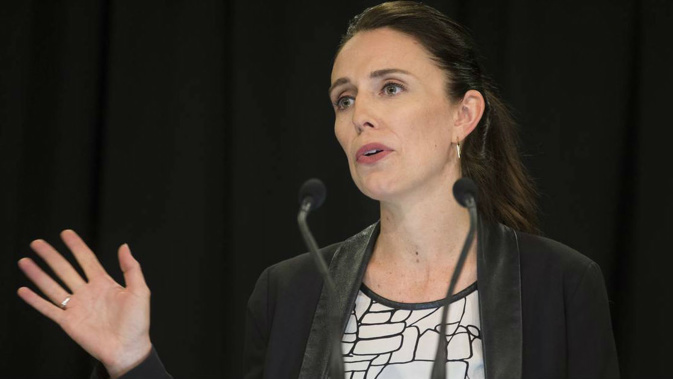
The Government is cracking down on public sector bosses' pay and board conduct by introducing a new law on Thursday to give greater powers to the State Services Commissioner Peter Hughes.
It would effectively grant Hughes the power to set pay and conditions for the heads of all crown entities, including ACC and the Guardians of the NZ Superfund, which were criticised last year approving pay rises against Hughes' advice.
Prime Minister Jacinda Ardern announced the new bill in her post-cabinet press conference today, with State Services Minister Chris Hipkins alongside her.
Ardern said the new legislation will bolster public trust in crown entities and address the high level of public concern about the high levels of public sector chief executive pay.
"The public expects this level of accountability and transparency," Ardern said.
Under the bill, the boards of crown entities would need Hughes' consent for public sector CEO pay, effectively enabling him to set the pay and conditions. Hughes would also have the power to set a code off conduct for crown entity boards.
The bill would bring all crown entities into line with the rules that already apply to DHBs and universities.
It would also being make all the public sector boss positions five-year terms.
Hughes would also have powers of inquiry, and would no longer need to seek those powers from the minister.
Last year the Government criticised the "rampant growth" in public sector bosses' pay, in light of three instances where pay rises were approved against the Hughes' advice.
The Senior Pay Report, released last December, covers state sector bosses' pay in the year to June 2017. It identified the three Crown entities - the Guardians of NZ Superannuation, ACC and Telarc - where the boards approved pay increases against Hughes' advice.
The former head of the Super Fund, Adrian Orr, who has been announced as the next Reserve Bank Governor, was given a pay rise from between $950,000 and $959,999 to a reported $1.03 million.
ACC boss Scott Pickering had a pay rise from between $810,000 and $819,999 to between $830,000 and $839,999.
Telarc boss Philip Cryer had a rise from between $210,000 and $219,999 to between $250,000 and $259,999 - potentially a 24 per cent pay increase.
"While the board has the right to make these decisions, I do not believe increases of the magnitude given are warranted or justifiable in a public agency, especially where the increase follows previous increases over and above my advice," Hughes said at the time.
"This information [in the report] can inform ministers' decisions about the tenure of board members."
Hipkins asked the commission for advice on legal and regulatory changes - including possible changes to the Crown Entities Act - to contain growth in chief executives' pay, which he said had "gotten out of hand".
"We want to see a closing of the gap between high and low income earners and the public sector should be leading by example."
The report showed that the average remuneration increase for public service bosses for the year to June 2017 was 2 per cent - up from 1.3 per cent the previous year.
It was 2.7 per cent for Tertiary Education Institution and DHB chief executives, and 4.1 per cent for Crown entity chief executives, which were 2.8 per cent and 3.8 per cent the previous year respectively.
Over the same period, the average pay increase across the public sector was 2.2 per cent.
Snapshot of chief executive remuneration for the year to June 2017:
• MBIE - Between $800,000 and $809,999
• University of Auckland - Between $710,000 and $719,999
• Police Commissioner - Between $690,000 and $699,999
• Treasury - Between $660,000 and $669,999
• Chief of Defence Force - Between $660,000 and $669,999
• Waitemata DHB - Between $620,000 and $629,999
The Senior Pay Report is based on total remuneration including base salary, performance-related payments, superannuation contributions and any other benefits received, such as additional leave.
Remuneration for government departments and ministry bosses is set by the State Services Commissioner, except for those set by the Remuneration Authority (SSC, Crown Law and GCSB).
Remuneration for Crown entity chief executives is set by their boards.
The Remuneration Authority sets remuneration for Officers of Parliament and chief executives of non-Public Service Departments (Police, NZDF) chief executives.
Take your Radio, Podcasts and Music with you









